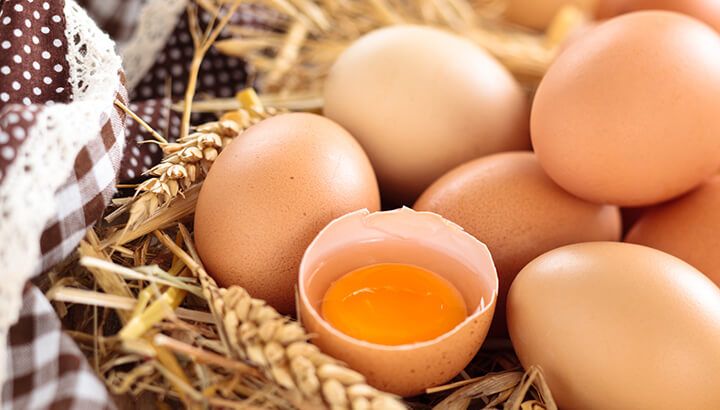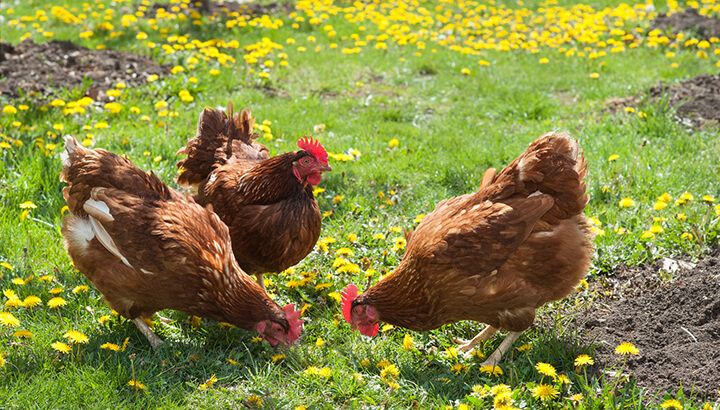
Emma Morano, the oldest person in the world, turned 117 this week in lake-side Pallanza, Northern Italy. She credits her longevity to being single, drinking homemade brandy and eating a certain staple every day: two raw eggs.
The oldest woman in the world
Born in November of 1899, Morano is the last known person to be born in the 1800s. This week she was surrounded by friends, family, the press and her doctor, who presented her with a large birthday cake to celebrate her birthday.
Back in her teens, Morano was told by a doctor to start eating three eggs a day for her anemia. Up until a few years ago, she did just that. She’s since slowed down on her intake — down to two a day — but Morano has little doubt that eggs are the reason she’s made it this long.
The connection between longevity and diet
It’s well established in the scientific community that a balanced, whole foods diet plays an integral part in overall health and wellness. But can diet impact longevity as well?
Well, consider this. Your diet alone can both cause and reverse inflammation, a dangerous precursor to many prevalent diseases that can take you out early, including diabetes, heart disease and cancer. Since healthy foods can prevent or delay the onset of disease, it only makes sense that food and the aging process go hand-in-hand.
In fact, scientists have discovered that the Mediterranean diet is particularly effective at increasing life expectancy. It’s no wonder, too. This heart-healthy diet contains plenty of fresh fruits, vegetables, grains, lean meats and olive oil — all good things!
What the oldest people in the world eat
Miss Morano isn’t alone in her love of natural food. Here’s a look at what some of the oldest people in the world have said about their diets:
- Jean Calment (1875 —1997) attributed her good health to an occasional glass of wine and rich use of olive oil in her diet. She died at the age of 122 in France and had the longest lifespan of any human to date.
- Christian Mortensen (1882 —1998) made it to 115 years old before he passed away in Denmark. He credited a vegetarian diet and purified drinking water to his old age. As an added bonus, he said that friends, staying positive and lots of singing can help people live a long time. Sounds good to us!
- Maria Capovilla (1889—2006) was native to Colombia. She never smoked and only drank in moderation. Her family says she made it to 116 years old by drinking donkey milk and eating regular, small meals.
- Misao Okawa (1898—2015), was a Japanese supercentenarian who credited sushi, plenty of sleep and learning to relax as the secret to reaching age 116.
- Susannah Mushatt Jones (1899 — 2016), who was originally from Alabama, always ate four strips of bacon, scrambled eggs and grits for breakfast before she passed away at the age of 116.
- Violet Brown (1900— ) is currently the second-oldest living person behind Emma Morano at 116-years-old. At home in Jamaica, she drinks tea and eats small meals of fish, sweet potatoes, oranges and mangoes.
Okay, so it’s a mixed bag. But notice what most of these record-breakers have in common? They’re eating whole, unprocessed food choices. From olive oil to sweet potatoes, wine to donkey milk, these nutrient-rich foods and beverages add a wealth of vitamins, minerals, antioxidants, proteins and healthy fats to the diet. Now there’s some food for thought.
Health benefits of eggs

So back to Morano, our shining Italian example of longevity in the modern age. In her two eggs per day, she’s getting loads of nutritional benefits. After all, they contain all the nutrients needed to turn a single cell into a chicken embryo, right?
For starters, eggs are an excellent source of protein, containing six grams each. More than half of the protein is contained in the egg whites — the part without all the cholesterol — which is why many dieters prefer to remove the yolk. However, whole eggs (including the yolk) contain nutrients that can help lower risk of heart disease, including vitamin B12, vitamin D, riboflavin and folate.
Note: Even though some people may choose to eat raw eggs, the U.S. Department of Agriculture (USDA) advises against it. Consumption of raw or undercooked eggs may lead to salmonella poisoning, which can be extremely dangerous. We recommend eating cooked eggs only.
What about cholesterol?
For years, experts have been debating back and forth about whether eggs fall into the “healthy” or “risky” category. One large egg contains 185 milligrams of cholesterol. Consume two eggs in one sitting, and you’re exceeding the American Heart Association’s recommendation of only 300 milligrams per day.
However, new research from the University of Eastern Finland shows that eating one egg per day does not increase the risk of coronary heart disease, even in those who are genetically predisposed to it. Additionally, a recent study published in the Journal of American College of Nutrition concluded that eating one egg per day could actually reduce the risk of stroke.
How to choose the best eggs

Not all eggs are created equal. As the largest exporter of eggs in the world, the U.S. has taken quite a few shortcuts in egg production to meet high demands.
Typically, the hens in factory farms are cramped in tiny battery cages with their beaks cut off. The hens are not allowed to participate in natural activities, like foraging, dust bathing or stepping foot into the outdoors. They are also given low-quality feed, growth hormones and antibiotics — which all get passed on to us.
So how can you avoid conventional, factory-farmed eggs? Look out for these helpful labels:
- Cage-free: The hens are uncaged, free to walk and can engage in natural behaviors.
- Free-range: In addition to being uncaged, these hens have outdoor access.
- Pasture-raised: These hens are free to roam and eat natural sources of food.
- Antibiotic-free: These hens are not injected with antibiotics, like penicillin.
- Organic: These hens eat organic feed.
So, the next time someone asks how you like your eggs, smile and say “cage-free.” Whether scrambled or sunny-side up, go ahead and indulge in one or two every day. Who knows, maybe you’ll live as long as Emma Morano.
Do you know someone who made it into their 90s and 100s? What did they swear by? Let us know!
— The Alternative Daily
(Feature Photo: Courtesy of Reuters)

